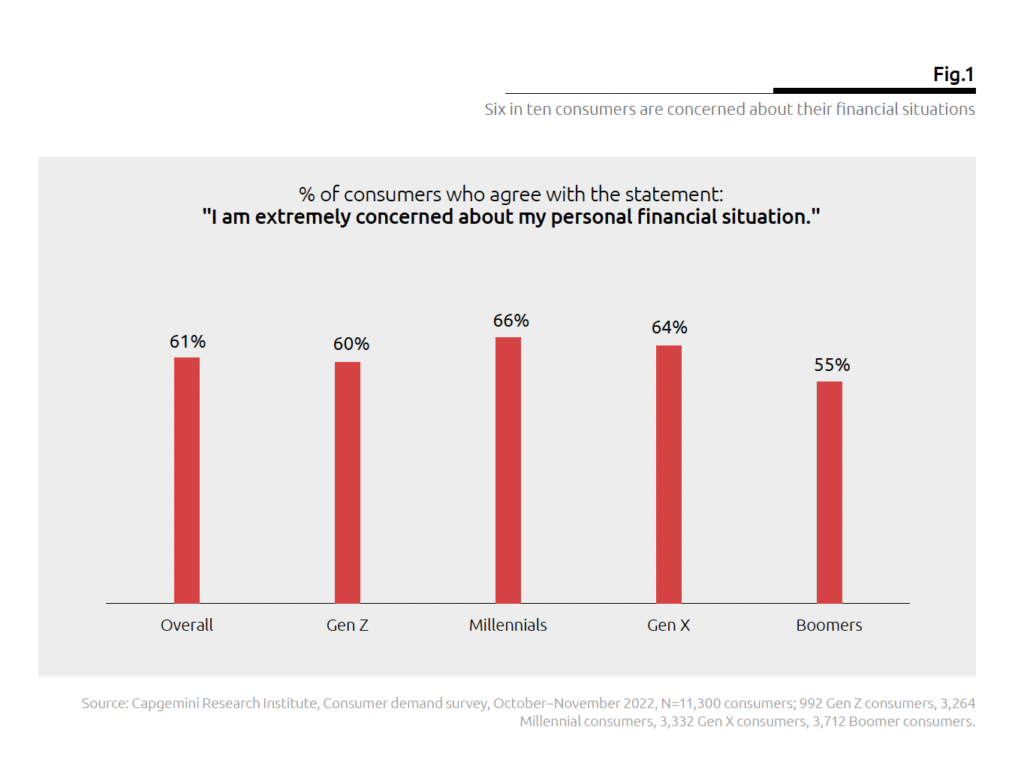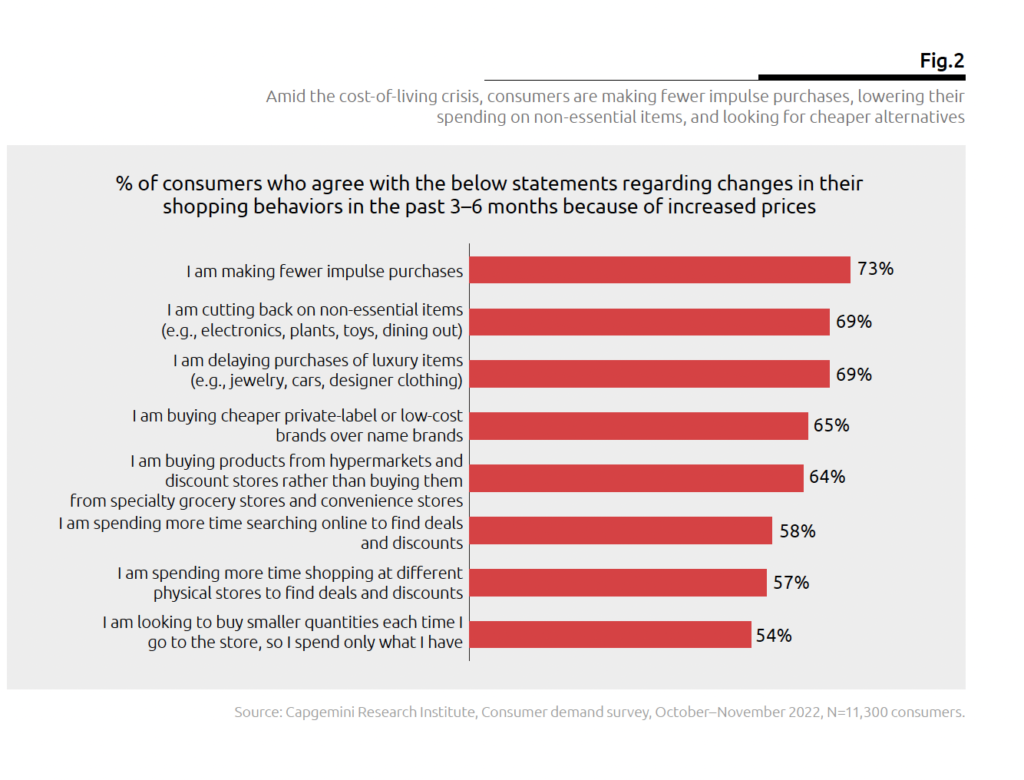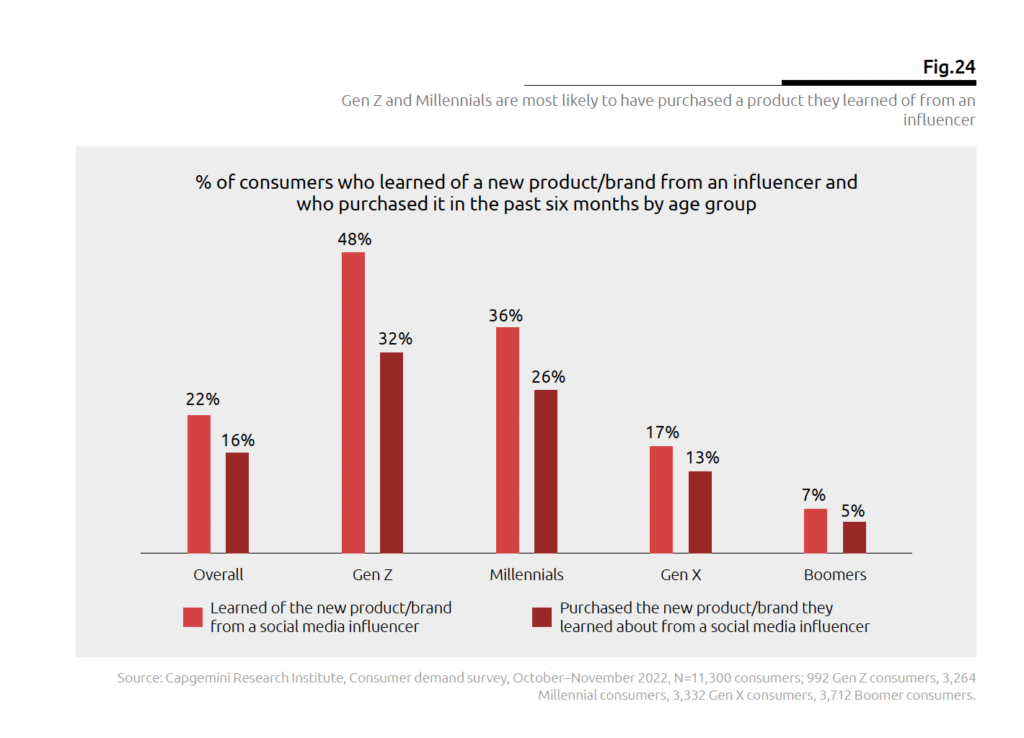A new survey of 11,000 adults across 11 countries shows a shift in consumer priorities and the role of influencers in brand discovery.
A new Capgemini survey, What Matters To Today’s Consumers, reveals consumer concern over the cost of living is driving them to be cautious about spending and look for affordable alternatives to higher priced goods—including new brands. Just over 60 percent of consumers surveyed in Australia, Canada, France, Germany, Italy, Japan, the Netherlands, Spain, Sweden, the UK and the US stated that they were extremely concerned about their personal finances.
According to the report, that concern is causing an uptick in global consumer interest in discovering deals and new brands.

Price Concerns Are Changing Customer Spending Habits
Consumers are also spending less due to financial uncertainty. The report states that 73 percent of consumers are spending less on impulse buys, and 69 percent are cutting back on non-essential items and delaying purchases of high-ticket items. Another 65 percent of shoppers buy less expensive private label brands over familiar name brands, and 58 percent report spending more time online looking for bargains.
According to Graeme Pitkethly, CFO at Unilever, quoted in the report, “We are starting to see consumers down-trading and looking for [greater] value; Sales volumes are beginning to fall as some shoppers switch from branded goods to own-label products in a bid to make ends meet.”
Those concerns are actually presenting a potential boon for discount retailers like Walmart.
According to Douglas McMillon, President and CEO of Walmart, also quoted in the report
“Higher-income families are shopping at Walmart because they are more price-sensitive now. Families making over $100,000 in household income have driven a lot of our growth since around the middle of the first quarter, when we saw food inflation reach a level where behavior was starting to change.”

Consumers Are Turning To Influencers To Discover New Brands
According to the report, consumers—especially Americans—are increasingly looking to influencers to guide them in their purchasing decisions, including which brands to buy. The power of influencers is reflected in the surge in social commerce, which is projected to show a global compound annual growth rate of 30.8 percent in the period 2022–2023, rising to $6.2 trillion by 2030. According to the report, US consumers were the most impacted by influencer recommendations among all consumer groups. “Social media influencers are impacting consumers’ search and purchasing processes,” the report states. “Forty-one percent of US consumers have discovered a new product on social media, 31 percent learned of the product through an influencer, and 25 percent went on to purchase the product.” Gen Z consumers are the most impacted by influencer recommendations, with 48 percent reporting that they discovered a new product through an influencer interaction and 32 percent stating that they made a purchase due to an influencer’s recommendations.

Per the report, the importance of influencers will likely continue as consumers of all generations have high expectations for brands and retailers with respect to their desire to gain access to better deals. Sixty-nine percent of consumers expect companies to provide bigger discounts to loyal customers, and 70 percent want more generous discounts from their brands and retailers to help them afford clothing, food, and other critical items.
Influencers play a significant role in unearthing deals and value for budget-conscious consumers. According to Drieke Leenknegt, Chief Marketing Officer, Timberland, a VF company who is quoted in the report: “Brands need to create relationships with the people that are influencing customers; this kind of collaboration is now key to their survival.”
Read the full report here.

